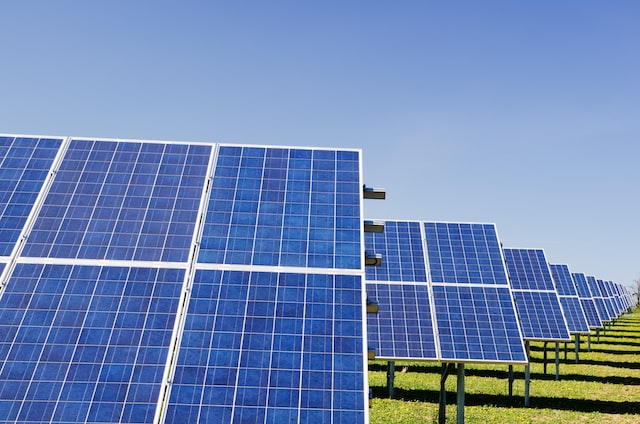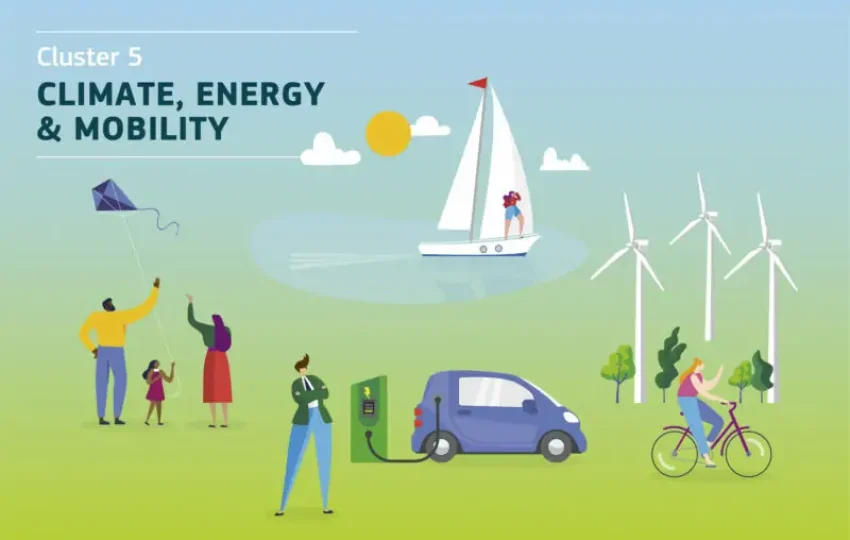As we continue to face the pressing issue of climate change and the need for a more sustainable energy system, the concept of energy communities has gained increasing attention and support from the European Union.
In this blog post, we will explore the benefits of energy communities and the various funding opportunities available through the European Union and other international organizations. Furthermore, we will look at the Energy Communities Repository, a platform created by the European Commission to connect and support the development of energy communities across Europe. Let’s start.
What Are The European Energy Communities?

Energy communities are groups of individuals or organizations that come together to jointly produce, consume, or manage energy. Energy communities are key to the European Union’s efforts to shift towards a more sustainable and efficient energy system.
The idea behind energy communities is that by pooling resources and expertise, individuals and organizations can access funding and other resources more easily, benefit from economies of scale and drive innovation in the sector.
European Energy Communities specifically refer to the communities within the European Union working towards the European Green Deal and Climate goals. The EU’s energy transition aims to secure sustainable, competitive, affordable energy, where at least 32% of energy comes from renewable sources by 2030, a target set by the European Commission.
Different Types of Energy Communities
Energy communities can take many forms and include various stakeholders, including households, small and medium-sized enterprises, local authorities, and research institutions. Some examples of energy communities include:
- Community-owned renewable energy projects, such as solar or wind farms, where the local community comes together to invest in and operate a renewable energy facility.
- Energy cooperatives, where households come together to purchase renewable energy collectively, with the goal of reducing their energy costs.
- Virtual power plants use smart grid technologies to aggregate distributed energy resources and allow multiple energy generators to be controlled as a single entity.
5 Benefits of Energy Communities
Some of the main benefits of European energy communities are the following:
- Increased access to funding and resources: Energy communities allow individuals and organizations to pool their resources and expertise. This can lead to greater economies of scale and increased access to funding and other resources. This is particularly important for small and medium-sized enterprises, which often have limited access to funding and other resources.
- Promotion of renewable energy and energy efficiency: Energy communities can play a key role in the deployment of new energy technologies, such as renewable energy sources and energy storage systems. By spreading the costs of these technologies across multiple individuals or organizations, energy communities can make it more financially feasible for small and medium-sized enterprises to invest in these technologies, which can help to drive innovation and growth in the sector.
- Enhanced community engagement: European Energy Communities encourage active participation of citizens, local authorities, and businesses in the energy transition. By involving local communities in energy-related projects, the energy transition becomes more inclusive and fosters the citizens’ feeling of ownership and commitment to the energy transition.
- Reducing energy costs: Energy communities can help households and small businesses to reduce their energy costs by purchasing renewable energy collectively, and through collective bargaining, they can also access better energy tariffs and deals.
- Promoting local economic development: Energy communities can promote local economic development by creating jobs, providing training and education opportunities, and attracting new businesses and investment. This can help to revitalize local communities and support the EU’s efforts to achieve sustainable and inclusive growth.
The Help of The Energy Communities Repository
The Energy Communities Repository is an important resource for energy communities in the EU. This platform, created by the European Commission, is designed to connect and support the development of energy communities across Europe.
The Energy Communities Repository serves as a database of information on existing energy communities, including their objectives, activities, and contact details. It also provides a platform for energy communities to share their experiences, best practices and connect with other similar communities, as well as with EU institutions and other relevant stakeholders. By making this information easily accessible and searchable, the Energy Communities Repository can help to foster the development of new energy communities and promote collaboration among existing ones.
European Funding Programmes in Support of the Energy Communities
European Regional Development Fund (ERDF)
This fund provides funding for projects that aim to improve energy efficiency and the use of renewable energy sources. It can support many energy community projects, including installing renewable energy systems, energy efficiency measures, and smart grid technologies.
European Energy Programme for Recovery (EEPR)
This programme was established to support the recovery of the European economy in the wake of the 2008 financial crisis. It provides funding for projects that aim to increase energy efficiency, use renewable energy sources, and deploy smart grid technologies.
Horizon Europe
This is the EU’s Framework Programme for Research and Innovation. It provides funding opportunities for research and innovation in energy systems, including renewable energy, energy efficiency, and energy storage.
InvestEU
This programme provides financial support for private-sector investment and strategic infrastructure projects in the EU, including energy projects.
Covenant of Mayors for Climate and Energy
This initiative encourages local authorities to develop and implement sustainable energy and climate action plans. It also provides access to EU funding.
European Agricultural Fund for Rural Development (EAFRD)
This fund supports the development of renewable energy and energy efficiency projects in rural areas.
Conclusion
Energy communities are important to the European Union’s efforts to shift towards a more sustainable and efficient energy system. By pooling resources and expertise, energy communities can drive innovation, reduce costs and increase access to funding.
Several funding opportunities are available through the European Union and other international organizations that are aimed at supporting the development of energy communities and the deployment of new energy technologies. To find the latest funding opportunities for energy-related projects in the EU, register for free and start today your EU funding journey.


